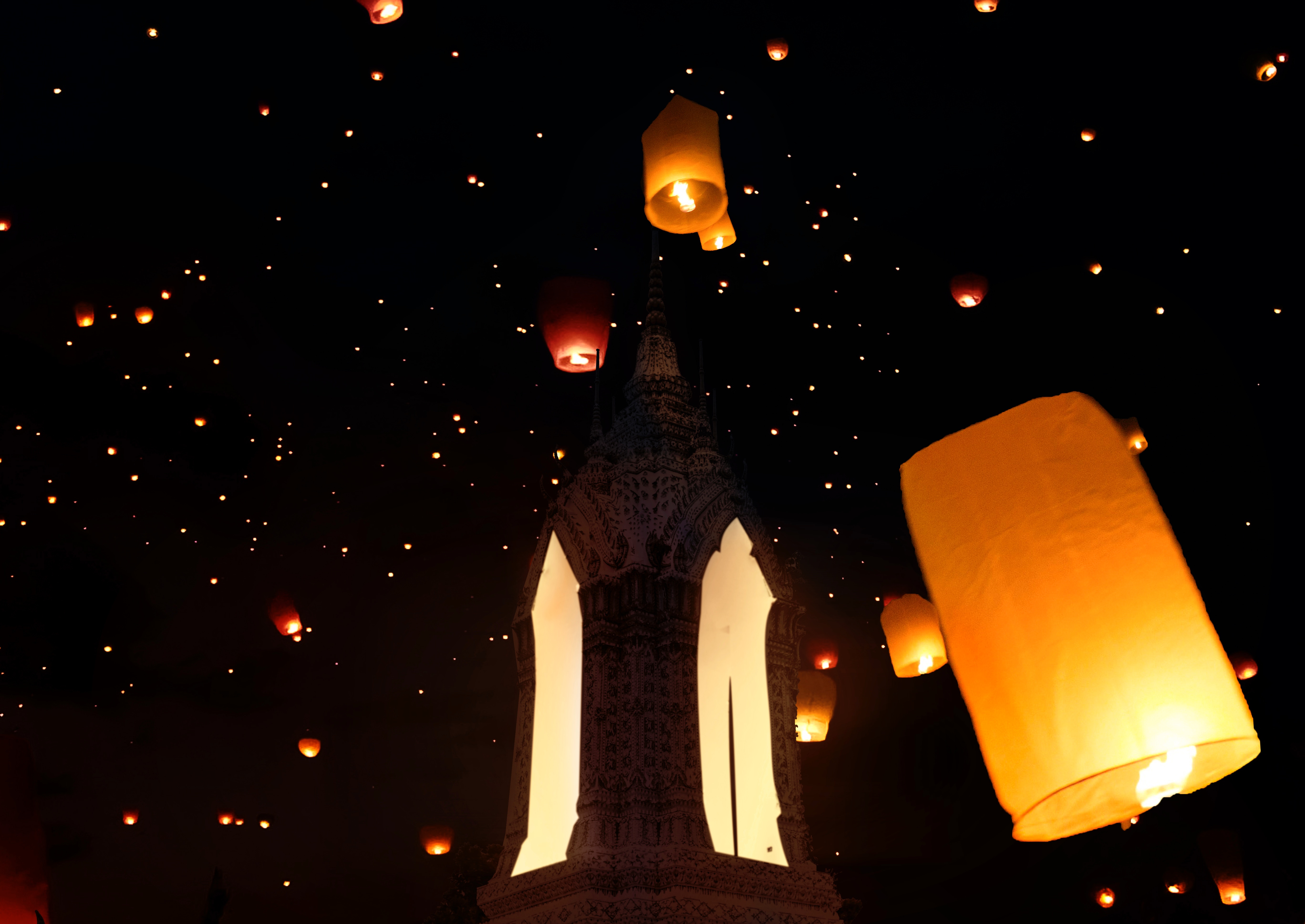Sawadeé!
I’ve been traveling across Thailand over the last month – mostly exploring the offbeat. As always, learning the language has been my biggest tool to explore the offbeat and connect with the locals. Not to forget it also helps get in negotiation to get better prices than “the English” tourists.
I was surprised when I heard from my friends who have traveled more on the beaten track that even the touristy places were not equipped with English in Thailand.
That comes as a surprise considering the amount of tourism in Thailand and – for good or for worse – the universality of the English language.
So, to help other travelers and nomads, here’s a list of the important words, phrases, and numbers you must learn in Thai!
NOTE: Thai is a tonal language so it’s best to hear these words a few times from locals to get the exact tone. But the guide below will still be a good reference to remember which phrase means what.
Let’s get started:
Hello / Hi
Sawa-dee-khrap (if you’re male)
Sawa-dee-kha (if you’re female)
Note: khrap is the respect suffix used by males and kha is the respect suffix used by females. You can use these to end any phrase.
You can also use the short version ‘Sawa-dee’ without the respect suffix. (Not recommended)
You can use Sawadee anytime of the day.
How are you?
Sabai-dee-mai-khrap? (if you’re male)
Sabai-dee-mai-kha? (if you’re female)
Just ‘Sabai dee mai?’ (Short version without the respect suffix)
I am fine
Sabai-dee-khrap (if you’re male)
Sabai-dee-kha (if you’re female)
Just ‘sabai dee’ (short version without the respect suffix)
* In the examples below, I’ve not used the respect suffix. You can add khrap (male) or kha (female) at the end of all these phrases / sentences.
Good Morning
Arunswad (pronounced Alun-sa-wad)
Good Night
Ratreswad (pronounced Ratee-sa-wad)
Goodbye
La-khon
What is your name?
Khun chue arai?
How old are you?
Khun ayu torai?
You can answer this question ones you learn counting in Thai which I’ve explained further below in this blog.
Yes
Chai
No
Mai
Or Mai Chai
(Mai chai literally translates to not yes)
Do you understand?
Khao jai mai?
Good
Dee
Thank you
Khab khun
I’m sorry / Excuse me
Kho thod
No problem
Mai pen rai
Garoonaa
Please
I like it
Phom chob
No, thank you
Mai, khab khun
When?
Merai?
Who?
Khrai?
What?
Arai?
Why?
Tammei?
How many / how much?
Torai?
How to count in Thai (0 to 9999)
0 – soon
1 – nùng
2 – song
3 – sam
4 – see
5 – há
6 – hok
7 – jed
8 – bpad (pronounced paad)
9 – kao
10 – sib (pronounced seeb)
11 – sib ed
12 – sib song
13 – sib sam
…
20 – yee seb
21 – yee seb ed
22 – yee sib song
…
30 – sam seeb
…
40 – see seeb
…
……
And so on until 99
100 – nùng roy
…
1000 – nùng pan
Chun gaao!
Cheers!
Very good
Dee mak
No have
Mai Mee
No good
Mai Dee
Aloy
Delicious
Aloy Ma
Very Delicious
Shorthand conversation Example:
Me: Sawadee krap (I say hello)
Girl: Sawadee kha (She says hello)
Me: Sabai dee mai krap? (I ask how she is)
Girl: Sabai dee or sabai dee kha. (She says she is fine)
Me: Khun chue arai krap? (I ask her name)
Girl: Aom. Khun chue arai kha? (Tells her name and asks for mine)
Me: Phom Cheé Dev (I reply with my name)
Me: Khao Jai Mai Krap? (I ask her if she understood me)
Girl: Chai kha (She says yes)
Me: Dee Mak (I say that’s good)
Thanks for reading..
Enjoy your time in Thailand!

2 thoughts on “Useful Thai Phrases to Explore Thailand Like a Local”